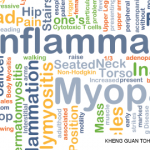 PHILADELPHIA—Rheumatology is a field that touches patients around the world and benefits from collaboration between clinicians and researchers from many different countries. With this in mind, ACR Convergence 2022 served as the site for the second annual Global Rheumatology Summit.
PHILADELPHIA—Rheumatology is a field that touches patients around the world and benefits from collaboration between clinicians and researchers from many different countries. With this in mind, ACR Convergence 2022 served as the site for the second annual Global Rheumatology Summit.
It has been two years since the initiation of the global rheumatology initiative, which seeks to encourage an international exchange of ideas and dialogue on many subjects that are relevant to this field of medicine. Advocacy has been key for advancing rheumatology care and research, and, indeed, the subject of global health is now a part of the new ACR strategic plan.
Evelyn Hsieh, MD, PhD, associate professor of medicine (rheumatology), chief of rheumatology, VA Connecticut Healthcare System, and program director, China Medical Board [CMB] Global Health Leadership Development Program, Yale School of Medicine, New Haven, Conn., serves as the chair of the ACR Global Engagement Committee. In this capacity, Dr. Hsieh was the lead and moderator for this year’s Global Rheumatology Summit.
The summit of the prior year was focused on health equity, and this year’s summit largely focused on climate change, conflict and migration, all of which have a large role on healthcare systems and delivery. In addition, sessions were also convened on complicated cases of idiopathic inflammatory myositis, bridging gaps in global access to rheumatology care, mentoring models and the shortage of pediatric rheumatologists, among others.
Climate Change, Conflict & Migration
The first speaker in the summit was Michael Taylor, PhD, professor, Department of Physics, deputy dean, Faculty of Science and Technology, and director, Climate Studies Group, University of the West Indies, Mona, Jamaica. Dr. Taylor’s talk was on the subject of climate science implications for the healthcare sector. He noted that when he speaks at conferences one of his main goals is to convey the perspective of the Caribbean region and to represent what climate change means for this part of the world.
He noted that large segments of the population in the Caribbean are on small, isolated, exposed lands and are quite vulnerable to climate effects. More broadly speaking, Dr. Taylor explained that climate change can impact the health of individuals in many ways, including via injuries, forced migration, malnutrition, infectious diseases and water quality, to name a few.
In addressing what climate change means for the world, he stated that the main trends are that: 1) average temperatures are increasing; 2) sea levels are rising; 3) the climate is more extreme than in past years; and 4) rainfall is more variable. For developing countries, these changes have a major impact on agriculture and potable water supplies.
Dr. Taylor described how conditions like dengue fever, influenza and asthma are impacted by climate and how social determinants of health, such as food availability and quality, are also adversely affected.
He noted that the climate is changing, but the larger issue is that it will continue to change and do so in even more intense and variable ways. Thus, achieving sustainable development of good health will be even more challenging in the future. In particular, the nutritional quality of food and crop yields will decrease, and this will result in worsening malnutrition for many populations. Climate change also significantly impacts the cost of energy, water and other infrastructure necessities.
Dr. Taylor outlined some possible steps to reduce the impacts of climate change. He argued that the world needs a strong mitigation agenda, with the goal of significantly reducing greenhouse gas emissions over the coming years. With respect to medicine and medical services, the healthcare sector itself must examine its role in the use of energy, healthcare waste management and transportation services for patients and healthcare goods. Given that the healthcare sector is extremely large, the impacts of decisions made by each hospital and healthcare system can be tremendous when added together.
With this concept in mind, Dr. Taylor noted that the world as a whole needs a comprehensive research agenda to further understand and address the climate crisis. In fact, Dr. Taylor put things quite bluntly: We will have climate change, thus any strategy to address this must have an adaptable agenda that can be flexible in light of unforeseen changes and outcomes.
Migration & Health
The next speaker in the summit was Kolitha Wickramage, MD, MPH, PhD, MA, global migration health research and epidemiology coordinator, United Nations (UN) Migration Agency, Migration Health Division, Global Data Institute, Berlin, Germany. Dr. Wickramage spoke on the subject of migration, climate change and health and sought to outline the actions of the UN Migration Agency, both historically and in the present day.
He explained that human mobility has many geopolitical implications, but the health impacts of this are often overlooked. In fact, an evidence gap exists in migration and health research in that most of this research comes from high-income countries. Thus, good data from developing nations is harder to find. This poses a challenge because many developing nations suffer from the negative consequences of migration, both into and out of these countries.
With respect to migrant workers, Dr. Wickramage noted that these workers must perform difficult and often dangerous work abroad and this has implications for their health. One issue faced by migrant workers is a lack of access to care. Many factors contribute to migrants not being able to properly use healthcare services, including the fact that many elements of healthcare legislation may not apply to migrants, a lack of ability to pay for services, the frequent existence of discriminatory treatment, substantial language barriers and a fear of arrest or deportation.
Dr. Wickramage stated that the Migration Health Division at the United Nations has three core areas of focus: 1) migration health assessment and travel assistance, 2) health policy and health promotion, and 3) migration health assistance for crisis-affected populations. Some activities of the UN Migration Agency have included assessing for and evaluating splenomegaly in migrants in Sub-Saharan Africa and evaluating the nutrition profile of Syrian refugee children before resettlement. These activities can be time intensive, but they are important in understanding the health needs being faced by some of the world’s most vulnerable populations.
Overall, the International Organization for Migration (IOM) institutional strategy rests on three pillars: developing solutions for people to move, developing strategies for people on the move and developing solutions for people to stay. As Dr. Wickramage indicated, many obstacles still need to be overcome, but the dedicated efforts of the IOM are helping to make a global impact.
Impacts on Disease
In the final section of this part of the summit, Matthew Coldiron, MD, MPH, medical epidemiologist, Doctors Without Borders, New York City, discussed global impacts of climate change, conflict and migration on human disease. He noted that Ukraine has been the most significant global health conflict this year and that Doctors Without Borders has been working in Ukraine since as early as 2014.
One of the most significant issues in Ukraine is that many elderly patients with chronic medical conditions are not able to maintain good continuity of care. Dr. Coldiron likened the situation in Ukraine to that in other war-torn areas, such as in Somalia, where continuity of care has also been an issue and resulted in poor outcomes. For instance, the prolonged military conflict in Somalia has interrupted vaccine programs, thereby leading to increased incidence of childhood infectious diseases.
Speaking broadly, Doctors Without Borders seeks to move fast and go to areas where other medical organizations cannot or will not go. It is clear that effects of climate change, such as droughts that cause ford shortages, can increase issues like malnutrition, which results in hospitalizations and decreases available services for other patients. In Pakistan, catastrophic floods have caused acute and long-term health issues for much of the population, particularly as many healthcare facilities have been destroyed or damaged by natural disasters.
In addition to the physical consequences of these issues are the mental health implications. Indeed, Dr. Coldiron noted that a key challenge in humanitarian medicine is that many patients have suffered psychological damage. Mental healthcare issues are increasingly recognized as an important part of health as impacted by climate change and violence.
Meet the Experts: Idiopathic Inflammatory Myositis
Changing gears, the next portion of the Global Rheumatology Summit focused on a panel discussion concerning the management of complicated cases of idiopathic inflammatory myositis. This session was moderated by Lesley Jackson, MD, instructor, Department of Medicine, Division of Clinical Immunology and Rheumatology, University of Alabama at Birmingham, and Rebecca Grainger, MBChB (Dstn), BMedSci (Dstn) MIsntD, CHIA, FRACP, FACHI, PhD, professor, Department of Medicine, University of Otago, Wellington, New Zealand.
The panelists for this session were Guochun Wang, MD, professor of medicine, Department of Rheumatology, China-Japan Friendship Hospital, Beijing, and Ingrid Lundberg, MD, PhD, professor, Department of Medicine, Karolinska Institutet, Stockholm, Sweden. The moderators and panelists led the audience through an expert discussion of several clinical cases in the world of myositis.
Anti-MDA-5 Antibody-Positive Dermatomyositis
The first case discussed focused on the management of severe skin and joint disease in anti-melanoma differentiation-associated gene 5 (MDA-5) antibody-positive dermatomyositis. In discussing this entity in general, Dr. Lundberg noted that anti-MDA-5 antibody positivity is associated with often severe and rapidly progressive interstitial lung disease (ILD). Thus, all of these patients should be evaluated with pulmonary function testing and high-resolution computed tomography (CT) imaging of the chest.
Dr. Lundberg also stated that it is important to carefully evaluate these patients for muscle involvement, which can be subtle. In fact, testing the endurance of muscles may be more sensitive than stress testing (i.e., testing strength for just a few seconds in each muscle group) alone, and the patient may not realize that issues exist with muscle endurance. Dr. Lundberg pointed out that the Myositis Functional Index can be used to test muscle endurance and is a helpful tool for clinicians.
Dr. Wang concurred with Dr. Lundberg in explaining that anti-MDA-5 dermatomyositis is a heterogeneous disease. He argued that it is important to evaluate specific lab parameters, such as white blood cell count, lymphocyte count, C-reactive protein and ferritin, to fully assess the patient and help identify subtypes of the disease. With respect to treatment, corticosteroids are often a significant part of therapy, and steroid-sparing agents may include methotrexate, mycophenolate mofetil and Janus kinase inhibitor therapy. Dr. Lundberg said that cyclophosphamide is an option as well, although it has significant associated toxicity, and that azathioprine can be used but is not particularly effective in this disease.
The case presented included a description of the patient developing severe shingles while on treatment, and both Dr. Lundberg and Dr. Wang agreed that these patients are at high risk for infection and ideally should be vaccinated with Shingrix as soon as possible (although this vaccine can be very expensive for patients).
It was noted that many patients with anti-MDA-5 antibody-positive dermatomyositis have a particularly high risk of pulmonary infection, and Asian patients have a higher risk of severe lung involvement and infection risk with this condition.
On the subject of lung involvement, Dr. Lundberg pointed out that we do not have the data to show if treatment of the condition can help prevent the progression of ILD, and Dr. Wang indicated that the presence of lymphopenia, high ferritin level and high-titer anti-MDA-5 antibodies tend to be associated with a high risk of ILD.
Dr. Lundberg advised clinicians that when evaluating and re-evaluating patients with anti-MDA-5 antibody-positive dermatomyositis it may be necessary to repeat pulmonary function testing frequently to avoid missing progression of disease.
Muscle Weakness
In the second case presentation of the session, a 70-year-old man with a history of sarcoidosis presented with right proximal leg weakness and sensory loss in the lower limbs. His laboratory studies showed normocytic anemia, elevated creatinine, elevated C-reactive protein and elevated lactate dehydrogenase, with normal creatine kinase, negative myositis panel and slightly elevated myeloperoxidase antibody but negative anti-neutrophil cytoplasmic antibody (ANCA) panel.
Magnetic resonance imaging (MRI) of the thighs showed extensive myositis in the right quadriceps compartment (vastus lateralis). CT imaging of the chest, abdomen and pelvis showed several areas of lymphadenopathy. A muscle biopsy demonstrated numerous findings, including inflammatory changes that can be seen with immune-mediated myositis, fibrosis, a focus of granulomatous myositis, features of inclusion body myositis (IBM), strong major histocompatibility complex 1 (MHC1) positivity, focal MHC positivity and an increase in Cox-succinic acid dehydrogenase positive fibers. The differential for the diagnosis thus included chronic sarcoid myopathy, paraneoplastic myositis or IBM.
In discussing how to approach this complicated case, Dr. Lundberg noted that it is essential the muscle biopsy be reviewed by an experienced musculoskeletal pathologist. In addition, the treating rheumatologist should look at the slides together with the pathologist to understand the detailed findings.
Dr. Wang explained that this patient’s case could be one of polymyositis, immune-mediated necrotizing myositis or isolated muscular vasculitis. He raised the possibility that this patient could have ANCA-associated vasculitis involving the muscle, a rare but possible scenario.
With regard to muscle biopsy results in IBM, both presenters explained that typical findings may include endomysial inflammation, deposits of amyloid-beta protein, rimmed vacuoles and a loss of muscle fibers. In expanding on this challenging case, Dr. Lundberg stated that it is sometimes helpful to repeat a muscle biopsy, especially if the site of the repeat biopsy can be guided by MRI of the muscles, with areas of muscle edema being key sites to sample and areas with atrophic muscles being the locations to avoid.
A Case with Many Complications
The third case discussed in this session was that of a 55-year-old woman with polyarthralgias, rash, dyspnea on exertion, fever and weight loss. She was found to have anti-MDA-5 antibody-positive dermatomyositis and a chest CT showed ILD. The ensuing treatments used in her care included glucocorticoids, rituximab, cyclophosphamide, tacrolimus and nintedanib.
Unfortunately, she developed hypoxic respiratory failure and required intravenous immunoglobulin and plasma exchange, followed by treatment with mycophenolate mofetil and tacrolimus. After this prolonged course of aggressive treatment, she developed ophthalmologic complications that were ultimately found to be due to cytomegalovirus retinitis.
In discussing this patient’s case, Dr. Wang stated that no clear evidence-based strategy exists for such complicated cases. He explained that many patients develop infections and some even die from such infections after aggressive immunosuppression. In his own practice, he rarely uses pulse steroid therapy and more typically uses 1 mg of prednisone per kg body weight per day.
Dr. Lundberg further stated that for patients like this consideration of extracorporeal membrane oxygenation or lung transplantation may need to be discussed when lung disease is severe. She also explained that no clear studies exist on the effects of intravenous immunoglobulin in severe ILD in patients with myositis, and the role of plasmapheresis in treating such patients is also unclear.
On this note, Dr. Wang did point to a recent trial evaluating the efficacy of plasma exchange in patients with anti-MDA-5 rapidly progressive ILD. In the study he referenced, patients with anti-MDA-5 rapidly progressive ILD have a poor rate of one-year transplant-free survival, and the use of plasma exchange was not associated with a better outcome. However, this treatment was used mainly in patients with more severe disease.1
Bridging Gaps in Global Access to Rheumatology Care
In the next portion of the summit, Mohammed Tikly PhD, FRCP, MMed, MBBCH, MACR, professor emeritus, Division of Rheumatology, University of the Witwatersrand, Johannesburg, South Africa, spoke to the challenges of accessing rheumatologic care in countries like his own.
Private vs. Public Sector
He explained that South Africa has a two-tier system of healthcare, the private sector and the state sector. Both of these sectors, Dr. Tikly noted, suffer from a shortage of rheumatologists. In the state sector, an issue with access to care is the limited formulary for medications. In the private sector, rheumatologic medications may be somewhat more accessible, but biologic medications are often still restricted and very expensive.
Dr. Tikly described several methods South Africa has used to increase access to rheumatologic care, including “borrowing” physician posts from general medicine and using privately funded posts to staff rheumatology clinics, encouraging rheumatologists from teaching hospitals to help staff outreach clinics in the community and providing rheumatology workshops for general practitioners and nurses in the community.
Regarding drug access in the state sector, many medications on the national essential drug list, such as mycophenolate mofetil, tacrolimus and rituximab, are used off-label in cases of autoimmune disease. Physicians have also sought to engage pharmaceutical companies and ask for price reductions when possible. In addition, an effort has been made to enroll patients in clinical trials to provide access to expensive medications, though this poses ethical dilemmas when these trials end and patients are left once again without access to the medications.
Within the private sector, strategies include lobbying efforts to increase the range of biologics available to patients and to waive copayments for patients, as well as assistance with copayments via donations from pharmaceutical companies and private hospital groups. These and other strategies continue to be deployed to help patients access the care that they need.
Strengthening Musculoskeletal Care
In the latter portion of this session, Andrew Briggs, PhD, FACP, professor, Curtin School of Allied Health and Curtin enAble Institute, Faculty of Health Sciences, Curtin University, Perth, Australia, spoke on the subject of strengthening health systems for musculoskeletal care. Dr. Briggs notes that, even though the World Health Organization (WHO) has listed good health and well-being as part of its sustainable development goals, musculoskeletal conditions are relatively under-prioritized in this framework despite the burden of disease in all regions and across the life course.
Instead, the WHO focuses on mortality as a main issue to address. Dr. Briggs thus asked: where does musculoskeletal health fit into the broader list of priorities for non-communicable diseases around the world? Looking at the Organization for Economic Cooperation and Development countries, he indicated that most goals focus on conditions like cancer, cardiovascular disease and diabetes, though about 50% of these countries did include musculoskeletal health and/or pain and mobility issues among their health policy priorities. Among lower income countries, however, musculoskeletal issues are essentially absent from lists of national health priorities.
Dr. Briggs described several pillars health systems can use to strengthen musculoskeletal health, including empowering, engaging and educating citizens; supporting leadership, governance and shared accountability; enhancing financial support, workforce and service delivery; supporting equitable access to medicines and technologies; monitoring of population health; and supporting research and innovation.
He stressed that work is being done on healthy aging, mobility and rehabilitation by the WHO, and it is imperative that this and other organizations seek to look beyond premature mortality. Globally, researchers and clinicians must unify around a consistent message for musculoskeletal health, build awareness and promote spread of knowledge about musculoskeletal issues, and use economic arguments to justify the cost effectiveness of integrating musculoskeletal health into broader topics.
Training the Next Generation: New Mentorship Models
Moving on to the next session, moderators Javaneh Lyons, MD, RhMSUS, MSc, rheumatologist, Alaska Native Medical Center, Anchorage, and Sarah Kellahan, AGNP, adult nurse practitioner, Division of Rheumatology, Washington University School of Medicine, St. Louis, Mo., introduced a series of speakers who spoke to the topic of mentorship in rheumatology.
Nurse Training
The first speaker was Ida Dey, FWACP, FGCP, MSc, SCE (RCP), consultant physician and rheumatologist, Department of Medicine and Therapeutics, Korle-Bu Teaching Hospital, Accra, Ghana, and lecturer, University of Ghana School of Medicine and Dentistry, Accra. Dr. Dey described the story of Saudatu Issaka, RGN, RN, BSc, who under Dr. Dey’s mentorship became the first rheumatology trained nurse in the country of Ghana.
Dr. Dey described her methodology as a mentor, including use of SMART development goals: These focus on goals that are specific, measurable, achievable, relevant and time-bound. Dr. Dey, in working with Ms. Issaka, quite purposefully provided protected time for her mentee to learn the information that she would need to provide rheumatologic care. Dr. Dey also employed explicit means of coaching and support, as well as role modeling, to encourage Ms. Issaka.
The goal was often to allow for open communication and provide a space for feedback. Ms. Issaka, who spoke after Dr. Dey, said this was important because she was initially unsure if she would succeed in her rheumatology training. However, through perseverance and the support of her mentor, Ms. Issaka was able to develop innovative projects, such as the Heralding Education in Autoimmune Rheumatic Disorders (HEARD) campaign and the RheumChat program, which seeks to make treatments accessible, easy and convenient for patients.
Styles of Mentoring
Zachary Wallace, MD, MSc, assistant professor of medicine, Harvard Medical School, Boston, and member, Clinical Epidemiology Research Program, Division of Rheumatology, Allergy, and Immunology, Massachusetts General Hospital, Boston, spoke next, and he focused on several different types of mentors that exist, as presented in an excellent paper published in JAMA Internal Medicine.2
The traditional mentor is one who uses a formal, dynamic and reciprocal relationship with a novice (mentee) to promote career growth for both the mentor and mentee.
The coach is an individual who teaches others how to improve in a particular skill or subject; coaches are distinct from mentors in that they focus on performance related to a specific issue rather than growth in multiple dimensions.
A sponsor is someone who does several things: uses his/her influence in a field to make mentees more visible; risks his/her reputation when recommending junior colleagues; and promotes a mentee without this action being visible to the mentee, meaning that support is given in a somewhat anonymous fashion.
Connectors, the final category, represent master networkers who have extensive social and political capital accrued from years of academic success. By making connections between others, these connectors can impact large fields in significant ways, though they may be and feel quite remote from mentees because they are working from afar and on a grand scale.
Dr. Wallace described how these types of mentorship have influenced the COVID-19 Global Rheumatology Alliance, which is a grassroots organization that began through connections on Twitter at the beginning of the pandemic. Several innovative mentoring approaches that have been used by this network include 1) involving patients extensively in the steering committee, study design, scientific writing and other endeavors to facilitate bidirectional mentoring between patients and physicians, 2) linking clinicians virtually from across the world to help them work together, and 3) using microgrants to assist investigators in developing countries while also guiding them through proposals, providing feedback and supporting data collection, analysis and presentation activities.
Shortage of Pediatric Rheumatologists
The final speaker in this portion of the summit was Sumaira Farman, MBBS, FRCP, MRCP, MACP, FACR, professor of medicine, National Hospital and Medical Center, Fatima Memorial Hospital College of Medicine and Dentistry, Lahore, Pakistan. Dr. Farman discussed the critical shortage of pediatric rheumatologists in much of the world, particularly in countries with low gross domestic product.
She outlined several treatment constraints in Asia-Pacific developing countries, including limited resources, inadequate government spending on healthcare, insufficient structured training programs, shortages of trained pediatric rheumatologists and fragmented systems of care across multiple providers. Through the Asia Pacific League of Associations for Rheumatology, Dr. Farman and colleagues have been able to create the Pediatric Rheumatology Special Interest Group team, set up collaborations across borders and provide online resources, courses and webinars geared toward spreading knowledge about the care of pediatric patients with rheumatologic diseases.
In Sum
The remaining sessions in the summit (reciprocal innovation in global rheumatology, reducing healthcare resource waste around the world, advocacy in global rheumatology) were equally enlightening, and clearly an ongoing need exists to foster international collaboration to address rheumatologic issues worldwide.
 Jason Liebowitz, MD, completed his fellowship in rheumatology at Johns Hopkins University, Baltimore, where he also earned his medical degree. He is currently in practice with Skylands Medical Group, N.J.
Jason Liebowitz, MD, completed his fellowship in rheumatology at Johns Hopkins University, Baltimore, where he also earned his medical degree. He is currently in practice with Skylands Medical Group, N.J.
References
- Bay P, de Chambrun MP, Rothstein V, et al. Efficacy of plasma exchange in patients with anti-MDA5 rapidly progressive interstitial lung disease. J Autoimmun. 2022 Dec;133:102941.
- Chopra V, Arora VM, Saint S. Will you be my mentor?-Four archetypes to help mentees succeed in academic medicine. JAMA Intern Med. 2018 Feb 1;178(2):175–176.



